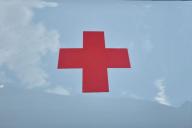According to research, free radicals have a negative effect on the production of substances necessary for our body.
Their effects can be neutralized with antioxidants such as beta-carotene and vitamins C and E.
Antioxidant foods include: carrots, cauliflower and broccoli, pumpkin and potatoes, peppers, wheat germ, seeds and nuts, apricots, strawberries, kiwi and oranges, olive and vegetable oil.
"Smart" carbohydrates
The diet should include food rich in carbohydrates. They will increase the production of serotonin and have a positive effect on the nervous system, thereby helping in the fight against depression.
However, not all carbohydrates are healthy. It is necessary to choose those that do not contain too much sugar.

Foods with “smart” carbohydrates include legumes, whole grains, fresh vegetables and fruits.
Protein Rich Foods
Protein products should definitely be in your diet when eating for depression, because they have a positive effect on the brain, helping it produce norepinephrine and dopamine.
Normal levels of these chemicals in the body will improve mental performance, focus and productivity.
Protein products include: peas and legumes, chicken and turkey, lean beef, dairy products.
Vitamin D
There is constant debate about the benefits of vitamin D. Some believe that products containing this vitamin help increase the amount of serotonin in the brain and relieve depression.
Other nutritionists, however, are of the opinion that the benefits of vitamin D are individual and depend on the climate of the place of residence and the time of year.
Foods containing vitamin D: nuts, sea fish, oatmeal and dairy products.
Omega-3
Nutritionists say that a diet for depression must include foods containing Omega-3.
These include: fatty fish, walnuts and flaxseed.
Selenium
Studies have shown that taking 200 mcg of selenium for a week can help relieve mild to moderate depression.
However, an excess of selenium in the body can be dangerous, as this substance can lead to intoxication.
You can get selenium from the following foods: oatmeal and whole grain pasta, legumes and dairy products, seafood and lean meats.








